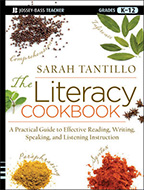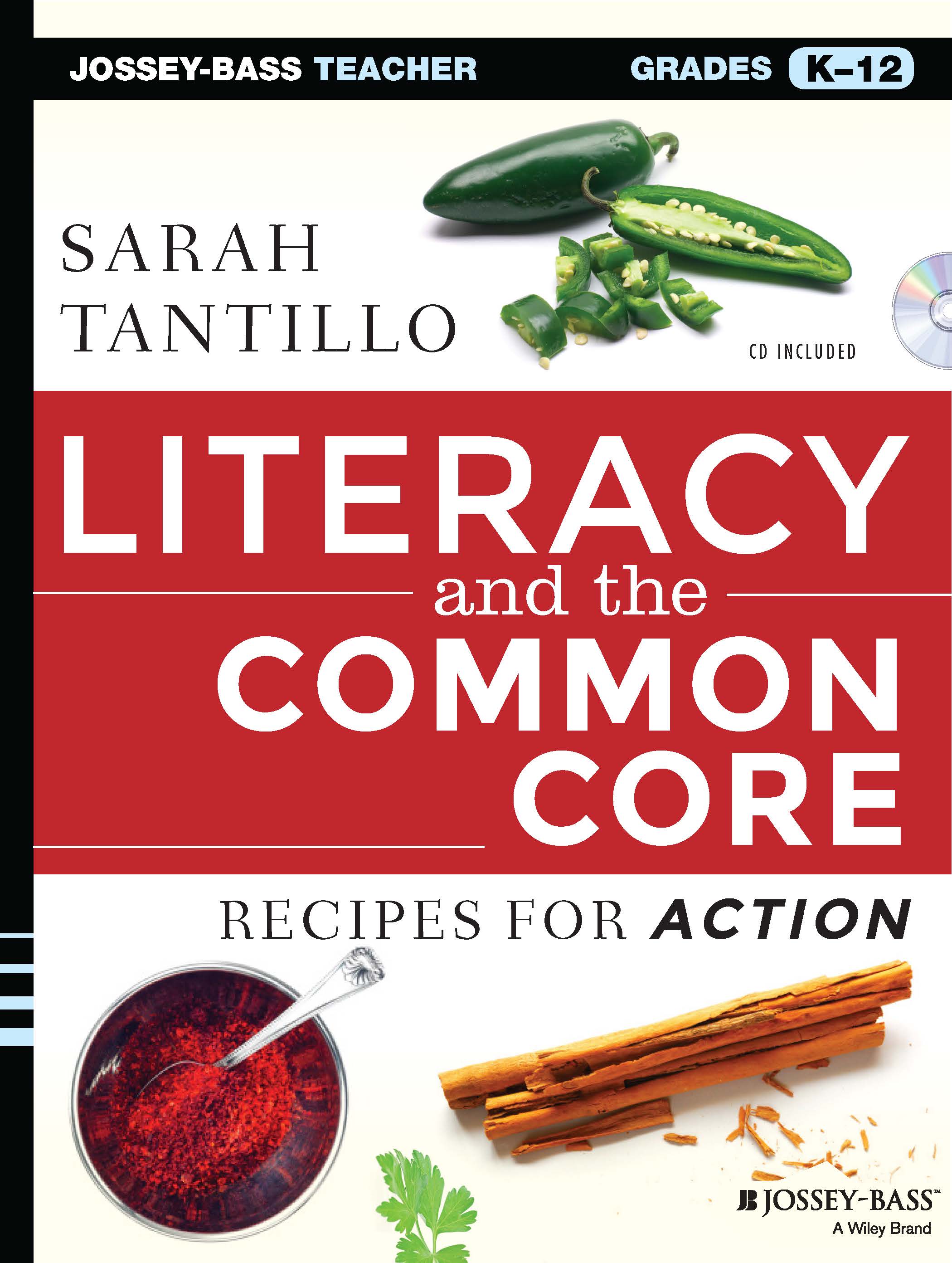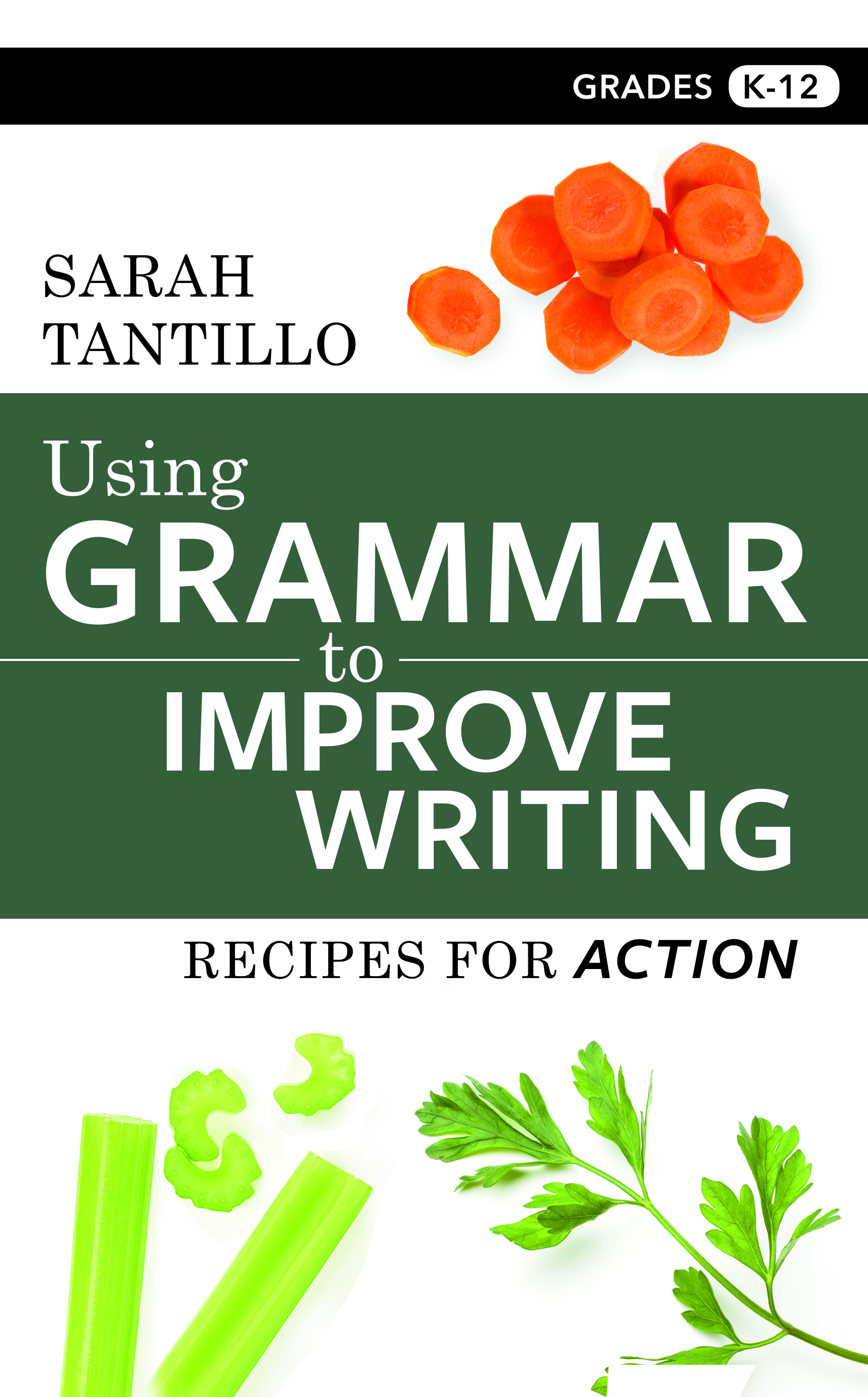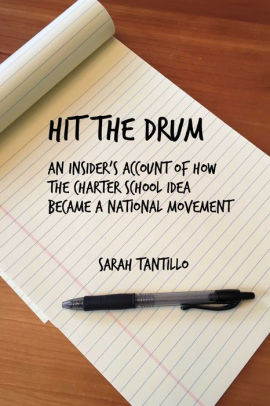If you want to strengthen your child’s literacy skills in general, these books may help! CLICK ON THE COVERS TO ORDER THESE BOOKS:
Also, if you're curious about educational options for children and want to know more about charter schools, check out my latest book:
Here are some additional tips and resources:
TIP #1: TALK TO YOUR CHILD MORE FREQUENTLY. See this piece in the New York Times, "The Power of Talking to Your Baby," by Tina Rosenberg, for an explanation of why this is so important. Here's another piece from the NY TImes on an initiative in Providence, RI, that is tackling this issue: "Trying to Close a Knowledge Gap, Word by Word," by Motoko Rich. No matter how old your child is, if he/she is in school, you can use these questions: "25 Ways to Ask Your Kids 'So how was school today?' Without Asking Them 'So how was school today?'"
TIP #2: READ ALOUD TO YOUR CHILD.
Many parents already read aloud to their children, but some do not realize how important it is to do so. I highly recommend Jim Trelease’s Read-Aloud Handbook, which makes a compelling case for why parents MUST read to their children and how it will boost their academic performance. He notes that in reading aloud, we accomplish the following: “condition the child’s brain to associate reading with pleasure; create background knowledge; build vocabulary; provide a reading role model” (p. 4). His book provides a list of “Do’s and Don’ts” and includes recommended reading lists. You can find out more on his Website HERE. Also, here's an article on how focusing your child on the PRINT can make a difference.
"Bedtime Reading for Children" includes some terrific recommendations of books to read with your children!
The NY Times piece (by Pamela Paul and Maria Russo) "How to Raise a Reader"is helpful.
Mike Petrilli of the Thomas B. Fordham Institute put together a "Kindergarten Canon"--must-reads for your little ones. Here's the LINK and here's the downloadable PDF. (Thanks to Mike Goldstein for the lead!)
Dwight Garner's NY Times article, "Memories of a Bedtime Book Club," offers some great recommendations of books to read aloud with your child(ren).
Here's another fun list: "67 Books Every Geek Should Read to Their Kids Before Age 10" (Thanks to Allison Dent, one of my former students I am proud to say, for this lead!)
For children learning to read, here are some useful Websites:
For teaching kids to read and helping those who struggle, READING rockets has very helpful information for parents. See also the TLC "Phonics" page.
Starfall describes itself as “a free public service to teach children to read with phonics.” It provides various activities for child-directed instruction.
MeeGenius “features beautifully illustrated and engaging eBooks with Read-Along Technology, so that budding readers develop word recognition by seeing words while hearing them pronounced.” It offers free and low-cost access to classic children’s literature. Click HERE for the free books.
StoryNory.com features hundreds of FREE audio stories!
TIP #3: USE WEBSITES THAT ENCOURAGE SELF-DIRECTED LEARNING.
While not strictly focused on literacy, the following Websites are useful and will no doubt continue to evolve.
ABCya.com (for K-5) describes itself as "the leader in free educational kids computer games and activities for elementary students to learn on the web. All children's educational computer activities were created or approved by certified school teachers. All educational games are free and are modeled from primary grade lessons and enhanced to provide an interactive way for children to learn. Grade level lessons incorporate areas such as math and language arts while introducing basic computer skills. Many of the kindergarten and first grade activities are equipped with sound to enhance understanding. Fun children's Holiday activities are available in grade level sections!"
BrainPOP "creates animated, curriculum-based content that supports educators and engages students. Our resources include movies, quizzes, experiments, timelines, activity pages, and much more covering hundreds of topics within Math, Science, Social Studies, English, Technology, Arts & Music, and Health. All content is aligned to and searchable by state standards." NOTE: Only SOME of the content is free.
FreeRice.com is a nonprofit that has two stated goals:
- Provide education to everyone for free.
- Help end world hunger by providing rice to hungry people for free.
The Website covers an array of subjects and enables users to learn vocabulary, grammar, and even other languages (and more!) with adaptive assessments (i.e., when you get a question correct, the next one is harder; when you get one wrong, the next one is easier). It features a cool graphic interface that shows you how much rice your correct answers are generating for the World Food Programme.
IXL offers "practice that feels like play: dynamic adaptive learning in K-12 math and language arts." The language arts sections mostly work on grammar skills. (Thanks to Lisa Lauria and Amber Merrigan at Camden's Promise CS for this lead!)
Khan Academy proclaims: “With a library of over 3,000 videos covering everything from arithmetic to physics, finance, and history and 315 practice exercises, we're on a mission to help you learn what you want, when you want, at your own pace.”
LearnZillion is “a learning platform that combines video lessons, assessments, and progress reporting. Each lesson highlights a Common Core standard. They now have more than 2,000 lessons targeting both math and ELA in grades 3-12!
If your child is working on research or current events, NewsELA and Time for Kids can be handy.
SCHOOLHOUSE ROCK: If you don't know what Schoolhouse Rock is, please click on this link; you will quickly find yourself SINGING about conjunctions and adverbs and much, much more! This Website has both the lyrics and You Tube videos. In short, it's a great tool for teachers or parents who want to teach grammar (among other things) with fun song lyrics. And if you grew up in the 70's like me, you will feel young again. Enjoy!
StoryNory.com features hundreds of FREE audio stories!
The Ultimate Word Games Guide provides links to other Websites offering free word games and other educational games. Thanks to Sheryl Witte for this recommendation!
TIP #4: HELP YOUR CHILD FIND “JUST RIGHT” BOOKS.
I firmly believe that any child who “doesn’t like to read” just hasn’t found the right book yet. Many children dislike reading because they have not been exposed to books that interest them that are also written on their level. Ideally, your child’s English teacher should be able to tell you what grade level your child is reading on (If not, you might want to ask the principal when that information will become available! ;>). Armed with that information, you can help your child find books that feel “just right”: not too easy or too difficult.
Lexile.com enables you to search for books on a particular subject AND on a particular level. This Website identifies the “Lexile measure” (based on word frequency and sentence length) of many books so that you can find books matched to your child’s reading level. For example, if you want to help your 5th-grade son find the titles of books about baseball, this Website will help you do that.
Scholastic's Book Wizard is a HELPFUL TOOL for identifying reading levels of particular books and finding similar books.
Once your child has fallen in love with AT LEAST ONE BOOK, you can go on the Websites for either Barnes & Noble or Amazon, enter the title of that book, and consider the recommendations that say, “People who bought this book also bought…”
Here are a few more suggestions:
- Check out the Recommended Reading page for tips on where to find good books! Also, see the Independent Reading page!
- Check out Goodreads.com. This article ("Get to Know Goodreads: Share this primer to the social reading site and help teachers and kids connect with great books" by Travis Jonker) explains how the Website works and how it can be useful to teachers and students (aged 13 and up) alike.
- NPR conducted a poll of teens, and here are the "100 Best-Ever Teen Novels." (Thanks to Tricia Lindstedt for this lead!)
- For boys, check out the Boy Book of the Month and Books for Boys, both curated by Jim Nicosia (Thanks to Gregg Festa, Sr., for this lead!).
- Also, check out Popular Young Adult Books featured on Goodreads.
- This one came recommended by a student: "Sofa Adventures: Reading Lists for Kids." You don't have to buy a sofa, and the book recommendations come with blurbs. (Thanks, Susan and Mary Lowe!)
TIP #5: ASK YOUR CHILD OPEN-ENDED QUESTIONS.
As any parent knows, the answer to the question, “Did you do your homework?” is always YES (whether it’s true or not). But if you ask, “What book are you reading now? What’s it about? What do you like/dislike about it? What is the main character like?” you will have a clearer sense of A) whether your child is doing the reading and B) how much he/she comprehends. PS--If you’ve read the book (or can borrow your child’s copy), you and your child can have much more interesting discussions.
TIP #6: POKE AROUND ON THIS WEBSITE FOR MORE INFORMATION.
- Is your child struggling to read? Check out the Phonics page.
- Want to support your child with independent reading? Check out the Independent Reading page.
- Want to help your child prepare for standardized tests? Check out the Test Prep pages, especially PARCC Prep.
- Want to help your child write an essay? Check out the Writing 101 and the Literary Response Paper Guide pages.
- Working on a research paper? Check out the Research Paper Guide page.
TIP #7: IF YOUR CHILD IS APPLYING TO COLLEGE, CHECK OUT THESE WEBSITES:
BigFuture--A comprehensive new site for college planning by the College Board.
GoSeeCampus--Another college search tool, designed particularly to support college tour planning.
***QUESTIONS ABOUT NJSLA/PARCC Preparation?*** Check out the NJSLA/PARCC Prep page and also my free blog posts on The Literacy Cookbook Blog.
Finally: If you have any questions or suggestions about this Website, please do not hesitate to reach out to me at literacycookbook@gmail.com.
THANKS!
ST





